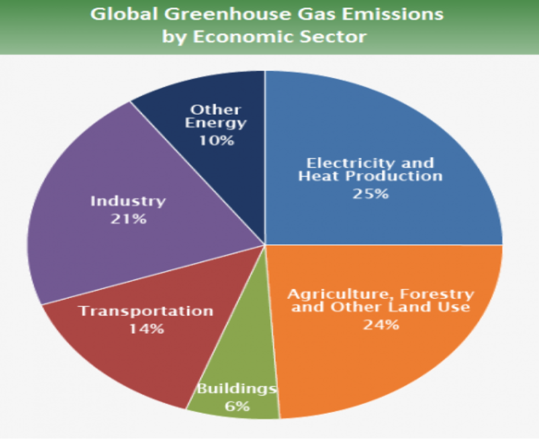
“…It is clear that the environmental crisis which is confronting the world will profoundly alter the future destiny or our planet. No one among us, whatever our status, strength or circumstance can remain unaffected. The process of change challenges present international policies. Will the growing awareness of “one earth” and “one environment’ guide us to the concept of “one humanity”? Will there be a more equitable sharing of environmental costs and greater international interest in the accelerated progress of the less developed world? Or, will it remain confined to a narrow concern, based on exclusive self-sufficiency…”
These stark words aptly describe the environmental state of affairs on earth and the challenges presented when driving home international policies to address the crises we face. The statement raises profound thoughts and questions regarding how we as human beings view unity. It tasks us to look at the financial disparities that exist globally. The speaker appears to have a sound grasp on the environmental issues we are currently facing. But there is a peculiar fact about this statement. This statement is an excerpt from the speech delivered by Prime Minister Indira Gandhi of India at the Stockholm Conference in 1972. How is it that humanity’s accountability to God as stewards of the earth (our home) and of all of creation can still find relevancy and validity in a statement that is nearly a half-century old? Is there really any viable explanation for us to have not moved the needle to resolve this crisis. …likely not. Nevertheless, the excerpt describes and simultaneously tells us where we have to go. The fate of future generations hinges on our actions or our inactions today.
The earth is paying a great price for humanity’s unchecked quest for prosperity. The greenhouse gases from human activity causing global warming result in inequitably distributed prices being paid around the globe. The most vulnerable among us are paying a higher price, that is, they are disproportionately impacted with unprecedented losses and damages.
The earth is in pain with more frequent, severe and intensified weather patterns and temperature extremes. These extreme weather patterns are resulting in floods, droughts, wildfires, and sea level rising that are leading to the degradation of the earth. We are truly in a dire situation, but there is hope- both scientifically and spiritually.
The 2018 report from the Intergovernmental Panel on Climate Change (IPCC) notes that every bit of warming matters. While the IPCC states in its press release that limiting global warming to 1.5°C would require “rapid and far-reaching” transitions in land, energy, industry, buildings, transport, and cities…”, it also states that “[l]imiting warming to 1.5ºC is possible within the laws of chemistry and physics but doing so would require unprecedented changes…”
Unprecedented changes must include financially supporting and implementing innovation. Prime Minister Gandhi’s query regarding “one humanity” must be taken to heart and brought to fruition. For we are all interlinked. We must act with resolve to honour our accountability to God for all of creation. We must heed the findings of the IPCC report. We work to transition to a zero-carbon society as soon as possible. This transitioning as outlined in the report is not limited to one sector. We have to use our God given creativity and address the sources of greenhouse gases from all sectors.
 Global GHG Emissions by Sector and IPCC 2014 and based on global emissions from 2010. Details about the sources included in these estimates can be found in the Contribution of Working Group III to the Fifth Assessment Report of the Intergovernmental Panel on Climate Change.)
Global GHG Emissions by Sector and IPCC 2014 and based on global emissions from 2010. Details about the sources included in these estimates can be found in the Contribution of Working Group III to the Fifth Assessment Report of the Intergovernmental Panel on Climate Change.)
We must be able to say regarding our generation’s response to climate change that: “We did a good job.” We can envision what this might look like. The transition occurs with no incremental harm or increase in poverty. No employees or communities are stranded. This will entail the reduction in and the curbing of greenhouse emissions that provides fairness for all; sufficient training and education for workers in new careers; jobs with opportunities at fair wages; and workplace conditions that are void of health and safety hazards. Workspaces are welcoming of all and remove barriers to success and upward mobility. Workplaces proactively address gender and human rights in a manner that is free from biases, bigotry or prejudices. There is authentic reconciliation of relationships and healing among those that exist on either side of the political divide. Societies are not prompted but act with measurable outcomes. We:
- Pray for guidance
- Become educated on the facts;
- Raise awareness in our communities;
- Love our neighbors (understanding that neighbors are next door and around the globe);
- Advocate for those disproportionately impacted; and
- Work to implement processes, programs and projects that create resilient societies.
We must embrace, own and act with bold empowerment whose genesis is rooted in the hope of our faith that is justified in God.
—–
 Ruth Ivory-Moore serves as The Evangelical Lutheran Church in America’s (ELCA) Program Director for Environment and Corporate Social Responsibility where she manages environmental, climate change, energy, rural and shareholder advocacy matters.
Ruth Ivory-Moore serves as The Evangelical Lutheran Church in America’s (ELCA) Program Director for Environment and Corporate Social Responsibility where she manages environmental, climate change, energy, rural and shareholder advocacy matters.
